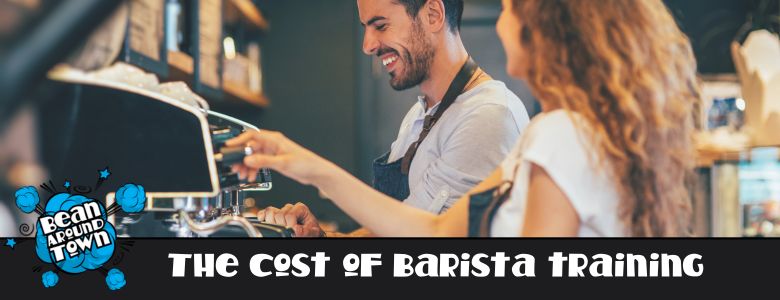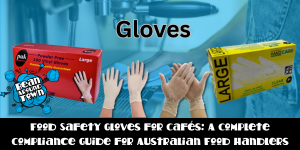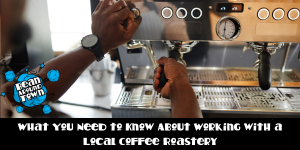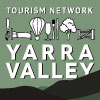The aroma of freshly ground coffee beans, the smooth hiss of the espresso machine, the art of crafting latte art – becoming a barista can be a rewarding and exciting career path. But if you’re considering taking the plunge, you’re probably wondering, how much does barista training cost in Australia?
Well, just like a good cup of coffee, the answer isn’t always simple. Several factors can affect the price, including the type of course, its location, and even its duration. Coffee machines also play a role in shaping your learning experience, as mastering their use and learning how to serve espresso coffee are key to becoming a skilled barista.
Let’s explore those rich layers of barista education to help you figure out your ideal path.
Table of Contents
Factors Affecting Barista Training Costs in Australia
Several elements can influence the cost of barista courses in Australia. Knowing what to look for can help you find a course that fits both your budget and aspirations.
Course Type and Duration
Barista courses come in a variety of flavours. A short introductory course, which could be just a few hours long, will likely be easier on the wallet compared to a comprehensive program. For instance, you can find short courses at Bean Around Town in Melbourne that pack a punch within a single day. These quick courses might be a perfect choice if you’re just starting or want to brush up on the basics.
On the other hand, if you’re serious about mastering coffee art and diving deeper into the science of coffee brewing, a longer program spread over several weeks will cost more.
These advanced courses provide an extensive understanding and often cover specialised coffee machines, coffee grinders, and coffee brewing equipment, teaching you how to expertly serve espresso and other coffee beverages.
Location, Location, Location

Just like real estate, location plays a significant role in course costs. Major cities like Sydney or Melbourne, known for their vibrant coffee culture, often have a wider range of training options. However, this also means that courses in these areas might come at a higher price point.
For example, if you’re in Sydney and looking to level up your barista game, there are excellent training facilities available. These centres are strategically located to serve the high demand for barista skills in these areas.
Alternatively, exploring options in smaller cities or regional towns could offer more competitive pricing. This is where some digging and research come in handy to discover hidden gems.
Certification and Accreditation
While non-accredited programs can offer value, particularly for beginners or those with prior experience, having a certification from a reputable institution that is nationally accredited can make you more appealing to potential employers.
This can be particularly crucial if you’re entering a competitive job market. Many organisations view certification as a stamp of approval, indicating a specific skill set. For example, in Sydney, some barista training courses are nationally recognised and provide a statement of attainment recognised across Australia.
A nationally recognised qualification can boost your credibility and demonstrate your professional commitment.
Additional Costs
While the initial course fee covers the core training, you might encounter some additional expenses along the way. These may include textbooks, course materials, or even specialty coffee beans for practicing your craft at home.
Even if you’re considering free barista courses, it’s important to factor in these potential additions into your budget to avoid any surprises. This ensures you have a clearer understanding of the true overall investment required.
The Real Deal: Barista Course Prices in Australia
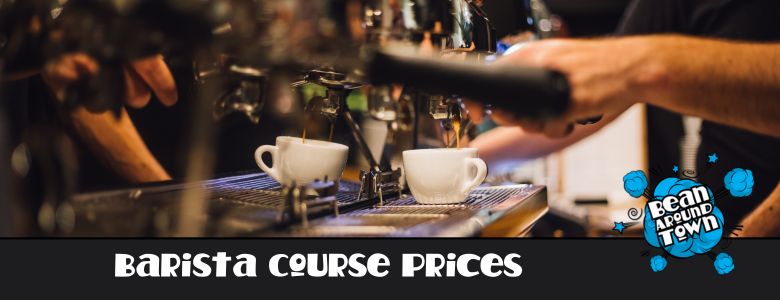
Now, let’s address the burning question – how much does barista training cost? In Australia, prices for barista training typically range from around $100 for a basic one-day course to upwards of $1,000 for more advanced or specialised programs.
These cost variations highlight the diverse learning pathways available to aspiring baristas. While short, intensive courses are more budget-friendly and focus on the fundamentals, more extensive and comprehensive courses offer deeper insights and specialisations, justifying their higher price tags.
Finding Affordable Options and Assistance
If you’re working with a limited budget, there are options to explore. TAFE (Technical and Further Education) institutions across Australia offer courses in hospitality, including coffee making, often with government subsidies that can lower costs.
You can discover TAFE offerings that cater specifically to food and hospitality in New South Wales. These institutions offer a well-structured learning environment and potential access to government assistance for eligible students. They can equip you with the practical barista skills needed to excel in the industry.
Furthermore, don’t be afraid to ask training providers if they have any payment plans or financing options available. They might be able to offer flexible payment arrangements, making it easier to manage costs.
The ROI of Barista Training
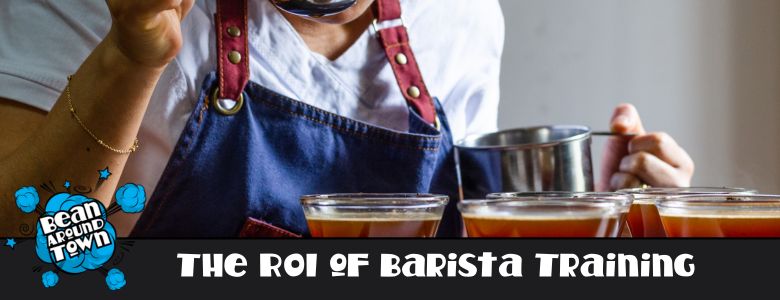
When you’re figuring out how much barista training cost fits into your financial picture, it’s helpful to think about the potential return on investment.
Landing a job as a skilled barista could mean earning a decent wage, plus tips.
In many urban areas, coffee shops actively seek experienced baristas who can contribute to their busy environments. A good barista coffee training course can set you apart in job interviews.
These courses often cover essential aspects such as food safety, hygienic practices, and responsible service of alcohol, ensuring you’re well-prepared for the demands of the industry.
FAQs about how much does barista training cost
How much does it cost to learn to be a barista?
Learning the art of being a barista can vary greatly depending on several key factors. You can find beginner-friendly, single-day courses priced around $100, while more comprehensive programs lasting several weeks and covering advanced techniques can go over $1,000.
What does a barista course cost?
Similar to many things in life, location plays a role in price, with bustling cities like Sydney and Melbourne potentially commanding higher course fees due to the larger demand for skilled baristas. Additionally, courses offering accredited certifications are likely priced higher, reflecting the added value of a recognised credential. For a ballpark figure, shorter introductory courses in Melbourne typically range from $79 to $200, while more extensive programs that offer deeper training and certification might cost between $999 and $2100.
How long is the training for a barista?
If you’re short on time and need a quick start, introductory hospitality training courses can pack all the essential knowledge into a few hours or a single day. However, suppose you want a deeper understanding, explore latte art, and confidently operate specialised equipment like a commercial coffee machine. In that case, programs lasting a few weeks or months would better suit you.
Is a barista course worth it in Australia?
Australia’s thriving café culture means good baristas are always in demand. With the proper training and honed skills, you can confidently navigate this competitive landscape, enhance your employment prospects, and potentially lead to better-paying opportunities within this vibrant industry.
Conclusion
While determining how much barista training cost in Australia requires some research and planning, investing in a comprehensive course could be a fantastic career move. Remember that obtaining these sought-after barista skills often comes with a cost – but one with potential returns through job satisfaction, career growth, and maybe even the joy of creating a fantastic cup of coffee.

